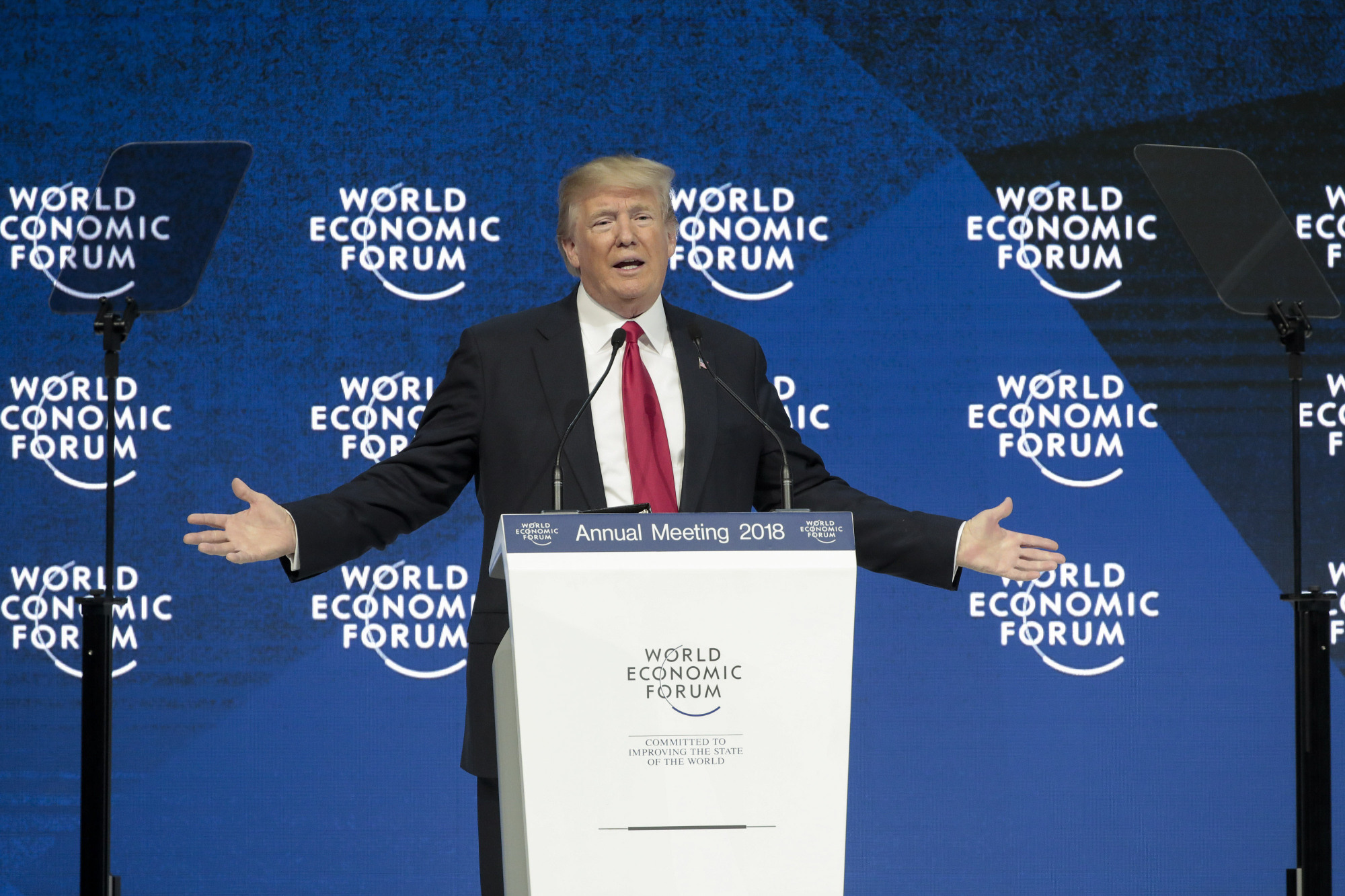In January, Toshimitsu Motegi, the minister in charge of economic revitalization, announced that an agreement had been reached on the TPP 11, absent the United States, and that it was set to be signed this March. Several days later, U.S. President Donald Trump attracted attention for remarks hinting at Washington returning to the Trans-Pacific Partnership. The evidence took the form of a speech delivered by Trump at the annual World Economic Forum in Davos, and an interview with U.S. media outlet CNBC he gave just before his speech.
In fact, Trump made little mention of the TPP during his speech in Switzerland. Most of the speech consisted of the president taking credit for job creation and economic revitalization that has taken place in the U.S. since he took office. Indeed, Trump emphasized his commitment to an "America First" policy that condemns "unfair trade" and pursues the U.S. national interest above all else. Trump simply mentioned the possibility of the U.S. pursuing negotiations with TPP members "either individually, or perhaps as a group." During an earlier interview with CNBC, however, Trump noted that "we would do TPP if we made a much better deal than we had." He also repeatedly described the TPP in its current form as "horrible."
Consider the sum of these comments, and Trump is merely suggesting that the U.S. would be open to participating in a TPP whose provisions furthered the realization of the "America First" policy. This is not a "return to the TPP" by any measure; they are remarks that seek to jump on the bandwagon of the TPP 11 agreement while effectively calling for a renegotiation of its terms. Having led the TPP 11 negotiations, Japan probably made the right call in coolly describing the prospect of renegotiation as "practically impossible."


















With your current subscription plan you can comment on stories. However, before writing your first comment, please create a display name in the Profile section of your subscriber account page.